Urban innovation in the age of AI: Highlights from the IASP Latin America Conference 2025
/Group_photo_on_stage_at_IASP_2025_Buenos_Aires.JPG)
The IASP Latin America Conference 2025 brought together visionaries, innovators, and leaders from across the region to Buenos Aires on April 29th and 30th, transforming the Parque de Innovación into a hub of conversation, collaboration, and bold ideas. Centered on the theme “Innovation in Cities in the Age of Artificial Intelligence,” the event explored how AI is redefining the way cities grow, connect, and evolve, as well as how our innovation ecosystems will adapt to the changing landscape.
The conference opened on April 29 with welcoming remarks from IASP CEO Ebba Lund and Adriana Ferreira de Faria, President of the IASP Latin American Division and CEO of TecnoPARQ. They emphasized the importance of strengthening global connections and reaffirmed the mission of innovation spaces to drive social and economic impact in their regions. Ezequiel Mesquita, CEO of the Parque de Innovación, highlighted the strength of the host ecosystem and shared that the park currently supports 56 startups, serving as a beacon of innovation in Buenos Aires.
The city’s leadership also took center stage. Jorge Macri, Mayor of Buenos Aires, and Hernán Lombardi, Minister of Economic Development, underscored the city's commitment to innovation as a cornerstone of economic development. They pointed to new educational initiatives aimed at cultivating STEM skills from an early age, demonstrating a long-term vision to position talent at the heart of Buenos Aires’ future.
Setting the tone for the discussions ahead, Martín Sciarrillo, Director of Data & AI at Microsoft South America, delivered a keynote that explored the evolution and future trajectory of artificial intelligence. He noted that modern AI models are becoming increasingly autonomous and capable, suggesting that the technology could prove to be up to twenty times more disruptive than foundational innovations like the printing press or electricity.
The two-day program featured high-energy startup pitch sessions, offering a stage for emerging companies to present their solutions to investors and accelerators. These sessions highlighted the entrepreneurial vitality of the region and the strength of its emerging tech economy.
Two central panels explored foundational challenges and opportunities for innovation in Latin America. The first, on financing the ecosystem, stressed the need for the region to operate as an interconnected whole rather than as fragmented efforts. Speakers advocated for public and private capital to be treated as investment, not subsidy, and urged governments to build markets, stimulate demand, and create an enabling environment for startups to thrive. The rise of corporate venture capital in the region was noted as a promising bridge between large enterprises and agile innovators. The conversation concluded with a call for bold thinking and ambitious goals, recognizing that even partial progress can yield significant returns.
The second panel focused on economic innovation and the need to move beyond viewing Latin America as a region of isolated innovation bubbles. Speakers emphasized that the 21st-century economy depends on knowledge and talent rather than land or labor. Cities must play a central role in transforming research and experimentation into tangible economic and social benefits. While Latin America has often consumed global culture, the panel encouraged the region to create and export its own cultural and innovation models to generate scalable business opportunities. The discussion closed with a reminder that innovation must ultimately serve social inclusion, or risk losing its purpose.
As the conference progressed, participants explored the theme of urban and social innovation. One panel focused on how cities can act as open innovation laboratories through Living Labs and collaborative districts. Local institutions showcased during the session included ITBA Escuela de Innovación, which represents academic leadership in technology; TUMO Buenos Aires, which offers cutting-edge non-formal education; and ENERI, which is advancing research in medicine. Together, these actors demonstrated that inclusive, systemic innovation rooted in long-term strategy is essential to meaningful progress.
The last panel of this year's conference addressed social innovation and the power of co-creation. Panelists discussed how engaging citizens and encouraging inclusive entrepreneurship could result in more accessible cities and equitable development. They emphasized the critical role of physical innovation spaces, like science parks and innovation districts, in fostering meaningful collaboration between academia and entrepreneurs. These environments create the conditions for fresh perspectives to address real-world problems and catalyze shared progress.
Wednesday (April 30th) also featured a series of technical tours across Buenos Aires, giving participants a closer look at the city’s most influential innovation spaces. These included a visit to the headquarters of Mercado Libre, one of the largest unicorns in Latin America; the Instituto Tecnológico de Buenos Aires (ITBA), a prestigious academic center for science and engineering; the Casa de Gobierno de la Ciudad de Buenos Aires, where an engaging discussion was held with the Chief of Staff Secretary Nadia Marinzalda; the Cero + Infinito building at the University of Buenos Aires, a state-of-the-art facility dedicated to science, IT, and mathematics; and the Parque de Innovación itself, the host and a leading model of urban innovation ecosystems in the region.
Throughout every session, conversation, and visit, one central idea emerged: innovation must be inclusive, collaborative, and grounded in real-world challenges. The IASP Latin America Conference 2025 not only underscored the region’s enormous potential but also affirmed that Latin America’s innovation ecosystems are ready to play a leading role in shaping the future of AI, urban life, and economic growth.
As the event closed, the message was clear. There is no shortcut to innovation—but there is a path. It begins with stronger networks and a shared vision of the future where leaders of innovation forge the road ahead.
We would like to thank all the attendees and speakers who made this an unforgettable event, as well as a special thanks to Parque de Innovación de la Ciudad de Buenos Aires for being wonderful hosts, and to Ezequiel Mesquita for bringing incredible energy to the stage, as well as Adriana Ferreira for her commitment to giving visibility to all our IASP Latin American Division members.
We look forward to seeing many of you at our upcoming events in Bolzano, Saint Hyacinthe, and Beijing, to keep linking the best innovation spaces around the world.
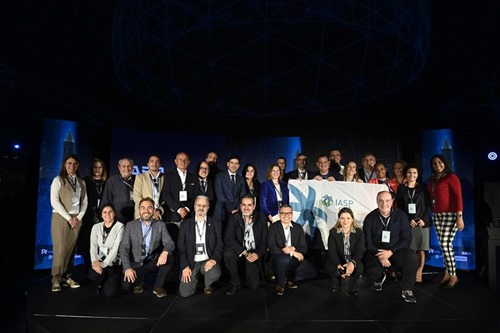
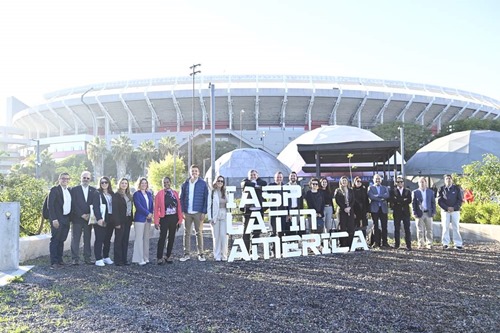
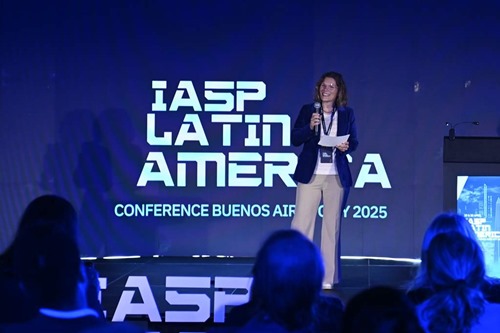
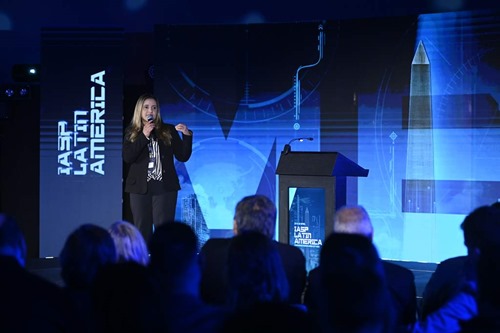

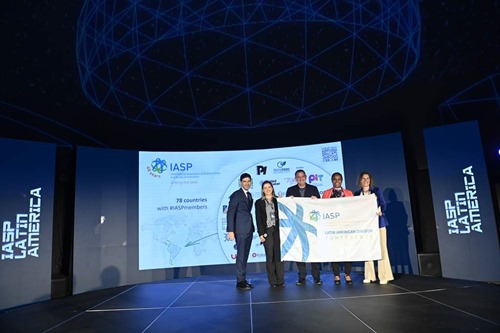
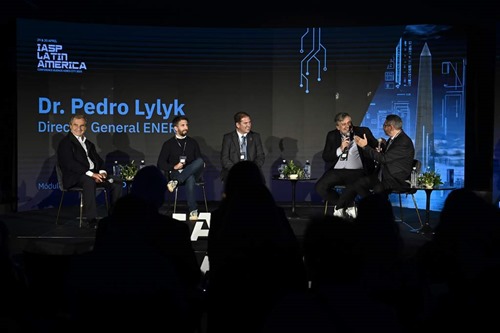
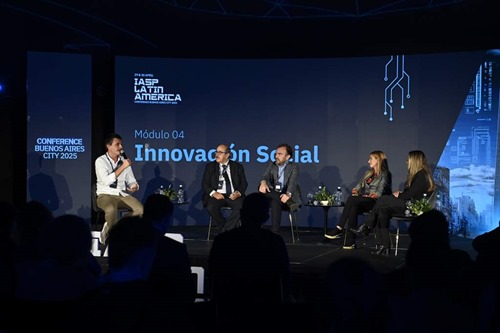
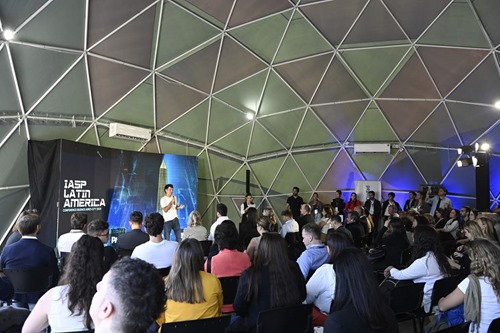
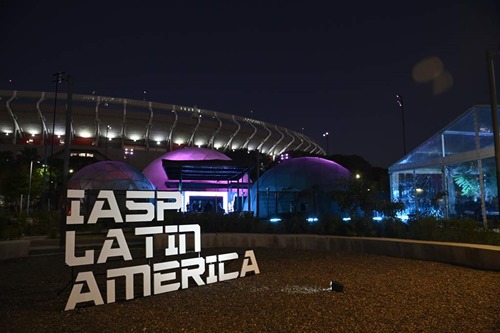
/)

/canvascolor(0xffffffff)/V_1.jpg)
/canvascolor(0xffffffff)/2017_08_04_fundecyt-pctex-h.png)
/canvascolor(0xffffffff)/MemberLogo-5650-6079.jpg)
/canvascolor(0xffffffff)/PNG_logo_DDI_seul_en_couleur_3.png)
/canvascolor(0xffffffff)/Lion_scienc_park_black_trans_3.png)
/canvascolor(0xffffffff)/7327A5D0-CF94-4EA4-B148-474F3E2AA8AA_2.png)
/canvascolor(0xffffffff)/Jinnovation_Park_logo.png)
/canvascolor(0xffffffff)/MemberLogo-68701-6096.jpg)
/canvascolor(0xffffffff)/Logo_ITP-01_1.jpg)
/canvascolor(0xffffffff)/2025_11_04_Saudi_Arabia_Dhahran_Techno_Valley.png)
/canvascolor(0xffffffff)/logo_29.jpg)
/canvascolor(0xffffffff)/MemberLogo-55602-27601.jpg)
/canvascolor(0xffffffff)/2018_01_18_China_Chongqing_Tuspark_Management_.png)
/canvascolor(0xffffffff)/2017_08_07_Pando.png)
/canvascolor(0xffffffff)/stepc_logo.png)
/canvascolor(0xffffffff)/Logo_UO_4.jpg)
/canvascolor(0xffffffff)/VUTSouthernGauteng.png)
/canvascolor(0xffffffff)/PSP_Logo-mit-Schriftzug_1.jpg)
/canvascolor(0xffffffff)/2017_11_15_Slovekia_CEPIT.jpg)
/canvascolor(0xffffffff)/MemberLogo-5826-6312.jpg)
/canvascolor(0xffffffff)/MemberLogo-89401-462801.jpg)
/canvascolor(0xffffffff)/buildings2.png)
/canvascolor(0xffffffff)/2022_11_11_Thailand_Prince_of_Songkla_University_SP.jpg)
/canvascolor(0xffffffff)/MemberLogo-5668-6103.gif)
